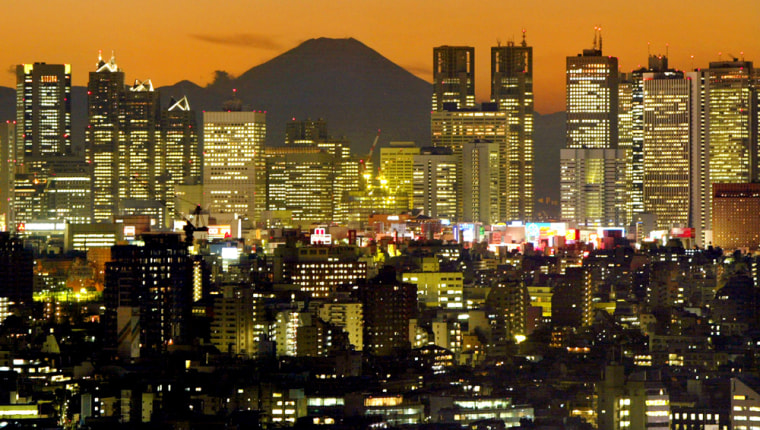The weak American dollar and strong European and Asian currencies helped make Tokyo and London the most expensive cities in the world, according to a survey released Monday.
American cities were absent from the top ten, with the most expensive U.S. city, New York, dropping two spots from last year to 12 in the survey of 144 urban areas conducted by Mercer Human Resource Consulting.
Moscow ranked in third place, with Osaka, Japan, and Hong Kong rounding out the top five most expensive cities.
The survey, drawn up twice a year, ranks cost of living for foreign workers, not local residents, and is used primarily by multinational companies to determine pay for expatriate employees.
“The euro appreciated more than 11 percent in the last six months,” said Marie-Laurence Sepede, senior researcher at Mercer. “So that made European cities go up and U.S. cities drop.”
American cities in similar places
Sepede noted that while U.S. cities got cheaper in relation to those in Europe and Asia, the rankings among American cities remained similar to previous years, with Los Angeles, Chicago and San Francisco all placing high on the list.
Also notable was the climb of Australian and New Zealand cities up the list, a shift caused by those nations’ strong currencies. Sydney moved from 67 last year to 20 this year, and Auckland, New Zealand climbed 35 places to 80.
The rest of the top 20 remained fairly constant, although Paris; Vienna, Austria and Istanbul, Turkey made their first appearances so high in the rankings.
The survey took into consideration 250 criteria, including the cost of utilities, food and entertainment.
While the survey looked at a range of living standards, Sepede said the study was most representative of the expenses of people working for big international corporations and maintaining fairly high standards of living.
Mercer said the continued appreciation of the euro against the U.S. dollar could eventually force companies to move employees and reorganize.
“Mainly, the depreciation of the dollar makes it cheaper to send employees to American cities,” said Jackie Barber, a spokeswoman for the survey.
